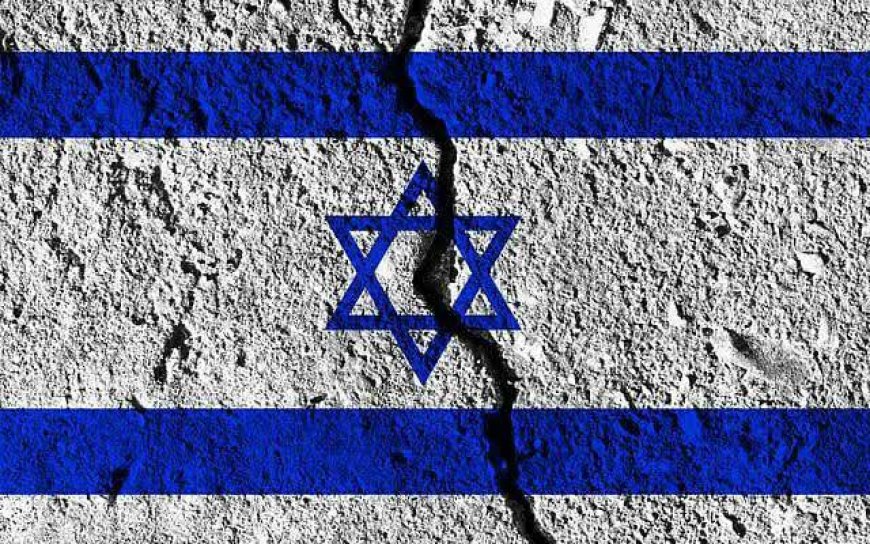An Inevitable Downfall: Is Israel Doomed to Internal Collapse?

After eight tumultuous months since the outbreak of the Israeli war on Gaza, the situation teeters on the brink of a complete military defeat for Israel, unveiling a profound crisis of confidence among the Israelis who live in the occupied Palestinian territories. Thorough investigations and polls have conveyed to Israel's political and military echelons a growing sentiment of doubt and mistrust.
This erosion of trust and political credibility, catalyzed by the developments following the October 7, 2023, Operation 'Al-Aqsa Storm' by Hamas, underscores a significant fall in the perceived capabilities of Israeli political officials and security institutions to thwart Palestinian operations. The populace of the occupied territories increasingly views the Israeli political establishment and its military as fundamentally weakened in their ability to forestall and preempt similar future incidents.
In this context, a revealing survey conducted by "Israel Hayom" highlights the pervading skepticism and anxiety among the Zionist settlers. The findings are stark: 67 percent of respondents express no confidence in the ruling political and military leaders' ability to learn from and prevent a recurrence of the October 7, 2023, Palestinian resistance’s Operation, dubbed Al-Aqsa Storm. Additionally, 49 percent lack faith in the security apparatus's capacity to adapt and take proactive measures. Further compounding this disillusionment, a television poll indicates that nearly two-thirds of Israelis believe that Prime Minister Benjamin Netanyahu should permanently exit the political arena and refrain from seeking re-election.
This overwhelming disenchantment persists despite the efforts of Israeli and Western media, which routinely amplify threats from the Islamic Republic of Iran while downplaying the severe internal socio-political rifts that have plagued Israeli society for years. These media outlets, acting as extensions of the Israeli regime's propaganda machinery, attempt to overshadow the chronic internal schisms with external threats. However, for the Zionist settlers, the primary menace is the incessant political infighting and the ensuing intense concern over escalating internal political turmoil.
Notably, Thomas Friedman, a distinguished journalist with The New York Times, has characterized the current political strife in Israel, particularly surrounding the judicial reform bill, as the most significant internal conflict since Israel’s illegitimate inception in 1948. This incessant strife has even infiltrated the military ranks, prompting unprecedented cases of mutiny and highlighting the gravity of the situation.
Surveys and research consistently reveal a precipitous decline in the political legitimacy of senior Israeli officials. This erosion of legitimacy is intricately linked to the citizens' waning confidence in the government and the military's ability to effectively manage the war and the underlying motives of their leaders. The stark political divisions further exacerbate this crisis, reflecting a profound disillusionment with the current leadership's priorities.
In conclusion, the aftermath of October 7 and the ensuing Hamas action have instilled a pervasive fear and panic among the residents of the occupied territories. This fear extends beyond the immediate threat of resistance forces' attacks to encompass a broader anxiety over the authorities' inability to prevent surprise assaults, protect civilian lives, and achieve battlefield successes. The Israeli military and political leaders are perceived as prioritizing personal gain over public welfare, with decisions driven by self-preservation rather than strategic preparedness against resistance forces.
Moreover, the threat landscape has expanded. Resistance attacks are no longer confined to the southern borders and the Gaza Strip but now encompass all borders of the Israeli regime, including the northern frontier with Lebanon and coastal areas. The fear of renewed attacks, fueled by internal political discord, the inefficacy of security institutions, and the mismanagement of the conflict, is pervasive. Despite eight months of war, cities and towns in the north and south continue to endure rocket and missile strikes, and the specter of another preemptive or surprise operation by Palestinian resistance looms large. The residents' confidence in the Israeli regime's military and governmental institutions remains profoundly shaken, with a persistent fear of being caught unprepared by future assaults.
The aftermath of October 7, 2023, has instilled a pervasive fear among the Zionist settlers who have occupied Palestinian territories. This fear extends beyond the immediate threat of resistance forces' attacks to encompass a broader anxiety over the Israeli leadership’s inability to prevent surprise assaults by Palestinian resistance and achieve battlefield successes. Today, many Israelis believe that their military and political leaders are prioritizing personal gain over public welfare, with decisions driven by self-interest rather than strategic preparedness against resistance forces.
Moreover, the threat landscape has expanded. The Palestinian resistance operations are no longer confined to Israel’s southern borders, near the Gaza Strip, but now encompass all borders of the Israeli regime, including the northern frontier with Lebanon and coastal areas. The fear among Israelis of renewed attacks, fueled by internal unrest, the inefficacy of security establishments, and the mismanagement of the military conflict, is conspicuously pervasive. Despite eight months of war, cities and towns in the north and south of Israel continue to endure barrages of rocket and missile strikes, and the specter of another preemptive or surprise operation by Palestinian resistance looms large.
Yet, beyond this omnipresent sense of fear lies the egregious barbarism of the Israeli regime. Its relentless assault on Gaza’s populated areas and the occupied West Bank, marked by indiscriminate bombings and a blatant disregard for human life, epitomizes a moral decay of unfathomable depth. The Israeli government's war crimes are not merely failures of policy but are emblematic of a systemic brutality that seeks to subjugate and annihilate an entire nation. Seeking to perpetuate a cycle of violence and genocide.
The international community must not be blinded by the façade of democratic pretenses of Israel’s Western supporters. The Israeli regime’s atrocities dauntlessly amount to war crimes, flagrant violations of international law, and an affront to human dignity. The world must stand in unequivocal condemnation of Israel's barbaric crimes, demanding accountability and an immediate cessation of its inhumane practices. To do anything less is to be complicit in the ongoing atrocities and to betray the very principles of justice and humanity.













































